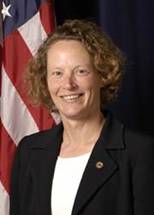ISBA-drafted eavesdropping bill advances out of House committee
 House Bill 3944, which was drafted by the Illinois State Bar Association (ISBA), advanced out of a House committee on Wednesday by a vote of 9-2. The bill would allow citizens to record audio of police officers in public places. Video recording is already allowed in Illinois.
House Bill 3944, which was drafted by the Illinois State Bar Association (ISBA), advanced out of a House committee on Wednesday by a vote of 9-2. The bill would allow citizens to record audio of police officers in public places. Video recording is already allowed in Illinois.
State law currently requires the consent of all parties before a conversation can be legally recorded. Violators face a Class 1 felony and up to a 15-year prison sentence.
ISBA members Bob Loeb of Chicago and John Rekowski of Edwardsville and ISBA first assistant counsel Melinda Bentley testified before the committee in favor of the bill.
The bill is being sponsored by Rep. Elaine Nekritz (D-Northbrook).
Filed under:


Member Comments (2)
Why limit it to public places? Illinois' shameful history regarding its adoption of criminal penalties and civil sanctions for recording audio or video without the consent of all parties had its genesis in a legislative corruption scandal (I believe in the late 1970's) where Illinois legislators were convicted on criminal charges based on an informant's recording of conversations with the defendants. Illinois then passed its first anti-eavesdropping statute. Prior to its passage, a conversation could be lawfully recorded with the consent of one party. Since Illinois passed its first law, about 12 states have passed similar legislation, although Illinois remains the most penal and restrictive. Illinois public officials, including police, have consistently sought to shield their conversations and actions from public scrutiny ever since. Let's join the majority of states and make it legal once again to record audio or video as long as one party consents.
Absolutely